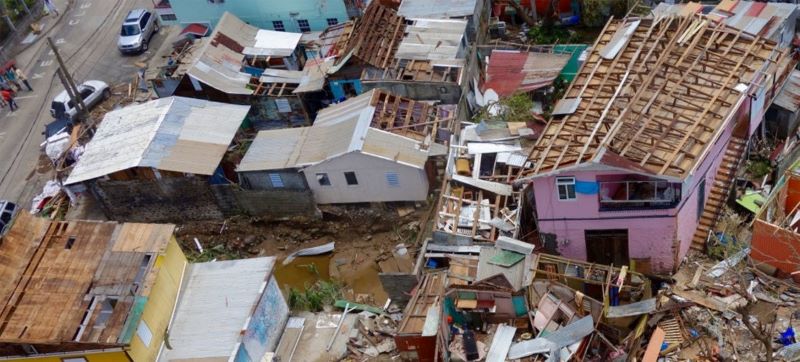 North Atlantic
North Atlantic
WMO predicts North Atlantic may witness up to seven major hurricanes in 2024
The UN World Meteorological Organization (WMO) has issued a warning for an “above average” hurricane season in the North Atlantic in 2024. Based on data from the US National Oceanic and Atmospheric Administration (NOAA), this would mark the ninth consecutive year of anomalies.
Typically, an average year sees 14 named storms with wind speeds exceeding 65 kilometres (40 miles) per hour. However, this year, 17 to 25 storms are expected, with four to seven of them potentially becoming major hurricanes, characterized by winds of at least 178 kilometres (111 miles) per hour. However, this year, 17 to 25 storms are expected, with four to seven of them potentially becoming major hurricanes, characterized by winds of at least 178 kilometres (111 miles) per hour. The usual average is three major hurricanes per year.
"It takes just one landfalling hurricane to set back years of socio-economic development. For example, Hurricane Maria in 2017 cost Dominica 800 per cent of its Gross Domestic Product," explained WMO Deputy Secretary-General Ko Barrett.
The forecasted above-average hurricane season, lasting from 1 June to 30 November, is attributed to high ocean heat and the anticipated development of La Niña weather phenomenon, which leads to significant cooling of waters.
Monitoring and early warning benefits
WMO tracks hurricanes though its Tropical Cyclone Programme. There have been eight consecutive years of above-average activity, with the last below-normal season occurring in 2015. Improved early warnings and disaster risk management have significantly reduced hurricane-related fatalities.
However, Small Island Developing States in the Caribbean remain disproportionately affected, according to the WMO Deputy Chief.
The WMO and its partners have prioritized early warning initiatives for small islands under the international Early Warnings For All initiative. They will advocate for more coordinated and targeted investment in early warning systems at the International Conference on Small Island Developing States taking place next week in Antigua and Barbuda.
From 1970 to 2021, tropical cyclones – including hurricanes – were the leading cause of reported human and economic losses globally, accounting for over 2,000 disasters. Despite this, the death toll decreased from more than 350,000 in the 1970s to fewer than 20,000 between 2010 and 2019. Reported economic losses for 2010-2019 amounted to $573.2 billion.
What’s in a name?
Naming tropical cyclones simplifies tracking and discussing specific storms, especially when multiple storms are active at the same time. This practice helps avoid confusion among meteorologists, the media, emergency management agencies, and the public.
The WMO has established strict procedures for naming tropical cyclones, which vary by region. In the Atlantic and Southern Hemisphere, cyclones are named alphabetically, alternating between male and female names. In other regions, names follow the alphabetical order of the countries.
"We need to be especially vigilant this year due to near-record ocean heat in the region where Atlantic hurricanes form and the shift to La Niña conditions, which together create the conditions for increased storm formation," said Ms. Barrett.
Support Our Journalism
We cannot do without you.. your contribution supports unbiased journalism
IBNS is not driven by any ism- not wokeism, not racism, not skewed secularism, not hyper right-wing or left liberal ideals, nor by any hardline religious beliefs or hyper nationalism. We want to serve you good old objective news, as they are. We do not judge or preach. We let people decide for themselves. We only try to present factual and well-sourced news.







